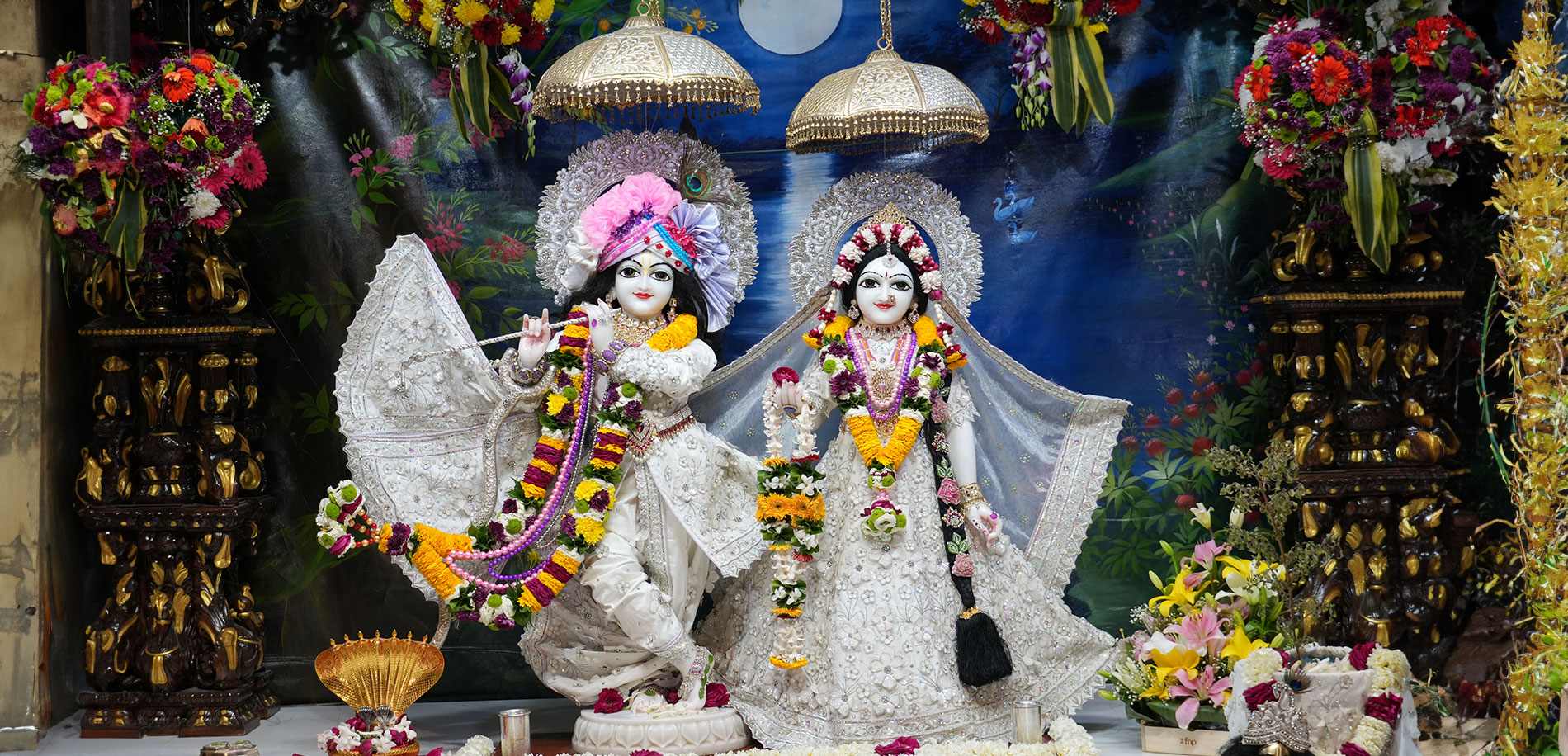Nirjala Ekadashi, the most sacred and austere of all 24 Ekadashis, falls on the 11th day (Ekadashi tithi) of Shukla Paksha in the Jyeshtha month. Observed with complete abstinence from food and water, it bestows the merits of observing all other Ekadashis combined, and opens the gateway to Vaikuntha, the abode of Lord Vishnu.
Nirjala Ekadasi
Nirjala Ekadashi-also known as Pandava Bhima Ekadashi-is celebrated during the peak of summer, typically in May or June (Jyeshtha Shukla Paksha Ekadashi). “Nir-jal” literally means “without water”, making this vrat the strictest of all. Devotees abstain from both food and water from sunrise on Ekadashi till sunrise the next day (Dwadashi).
On the eve of Ekadashi, devotees take a light meal and perform Sandhyavandanam, an evening purification ritual. The following day is observed in deep devotion, meditation, and self-restraint. Only a single drop of water may be taken during Achamana-even this is symbolic.
This day is particularly revered by Vaishnavas, who see it as the most powerful opportunity for soul purification and divine connection with Bhagwan Vishnu.
Deities Associated :
-
Bhagwan Vishnu : The preserver and sustainer of the universe.
-
Devi Lakshmi : The goddess of abundance and divine grace.
-
Bhima (Pandava) : Whose story forms the origin of this vrat.
Nirjala Ekadashi is the Ekadashi of all Ekadashis-one day of devotion, equal to a year of penance.
Origin:
As narrated in the Vishnu Purana and Markandeya Purana, Nirjala Ekadashi is linked to Bhima, the mighty Pandava, who found it hard to fast on every Ekadashi due to his insatiable appetite. Desiring the merits of these fasts, he sought guidance from Sage Ved Vyasa, who advised him to keep just one vrat, Nirjala Ekadashi, with complete abstinence from food and water.
Bhima followed this, and since then, Nirjala Ekadashi is also called Pandava Bhima Ekadashi.
Significance:
Like any other Ekadasi, Nirajala Ekadasi is also observed in honour of Bhagawan Vishnu. Person who observes Nirajala Ekadasi with proper rituals and in systematic manner is blessed with happiness, forgiveness of sins, prosperity and good health. Nirjala Ekadasi relieves one from the karmic cycle and opens the doors of Moksha. By the virtue of Nirjala Ekadasi, a person is directly taken to Vaikuntha dham after death and gets liberated from the cycle of birth and death.
Vedic Astrological Relevance
This Ekadashi falls when Sun enters Arudra Nakshatra, a transition symbolizing cleansing and purification. The digestive process slows naturally in nature-making fasting physically synchronistic. Aligning with Surya Nadi, the day enhances Tejas (spiritual glow), Ojas (vitality), and Sattva guna (purity).
Customs, Traditions, and Rituals:
Nirjala Ekadasi vrat is the most difficult of all the vrats of Ekadasis, because it has strict rules to be followed. Any deviation from the customs is considered as breaking the vow and nullifying the positive effects of vrat. Devotees take an early bath and offer prayers to Vishnu. Special abhishek with panchamrit is offered to Vishnu, along with offerings of special naivedyam. It is a tradition to have a light meal on the evening before Nirjala Ekadasi, after offering special evening prayer called Sandhyavandanam. Fast is broken by taking a sip of water on the sunrise, the next day, during Dwadashi. Charity and donation to Brahmins is considered an important tradition by all Vaishnavas.
PUJA VIDHI AND KATHA:
- Take an early morning bath.
- Take a vow or sankalp to observe the vrat meticulously.
- Wear a ten mukhi or nineteen mukhi rudraksha beads mala, to get relief from stress, negative energies and evil eye.
- Perform achamana and take only a single drop of water during this ritual; if more than a drop is taken, the purpose of the auspicious vrat will not be served.
- Wash murti of Vishnu and perform abhishek with panchamrit.
- Place it on the aisle to worship.
- Offer sandalwood paste, flowers, fruits and naivedya to Shri Hari.
- Ignite ghee lamp and dhoop.
- Offer a special sweet bhog to Vishnu.
- Worship Vishnu by using vibrant Vishnu yantra.
- Chant Vishnu mantra ‘Om Namo Bhagwate Vasudevaya’
- Chant Hare Krishna.
- Perform Vishnu Shasranaam puja and recite Vishnu Stotra and Sahasranaam, to have a purifying effect on mind and body.
- Lakshmi abhishek and pujan along with japa, homa and aarti is performed by Brahmin pandits.
- Stay awake the whole night and chant Mantras and sing hymns.
- Do Parana (breaking the fast), after sunrise and before the end of Dwadashi tithi the next day. Not breaking the fast before Dwadashi tithi ends, is not considered auspicious.
- Donate food, clothing, water pitcher, melon, hand fan and dakshina to Brahmins and needy and then break the fast by having water first.
Katha:
Once, a newly married man was heading to the house of his wife’s parents, to bring her to his house after performing all the post-marriage rituals. On his way to the village, he saw a cow walk towards a pond, to quench her thirst. But, while she was drinking from the pond, she slipped into the pond and got stuck. She cried for help but the man refused to help, fearing that his clothes may get dirty. The cow was a sacred cow, and she informed him that it was the day of Nirjala Ekadasi, and if he helps her, he would be immensely benefited from the act. He still refused to help the cow. She then cursed the man that he will take the body of a donkey within eight pahars. He quickly headed to his in-laws’ house and narrated the entire incident to his wife and her parents. They headed home and soon, the man transformed into a donkey and lost all his wealth. In order to meet their needs, he asked his wife to take him to the market so that he could labor and earn something to make their ends meet. However, aware of the donkey being her husband, the woman carried all the load on herself. On being asked by people, she narrated the story to them. Soon, the king heard about the couple and summoned them to his court. He asked a Brahmin for a solution, who informed that if someone could perform 101 Ekadasis and decree the benefits achieved from the same, to him, his curse will be nullified and he will come back in his original form. The king declared that whoever comes forward to help the man, will be rewarded with the desired amount. An old woman stepped in to help. But she laid the condition that she will decree 100 Ekadasis to the man, and keep the benefit of Nirjala Ekadasi to herself, in order to attain Moksha. The king agreed. The old woman observed 101 vrats on Ekadasis. She passed on the benefits of 100 Ekadasi vrats to the man, and reserved one Nirjala Ekadasi for herself. As a result, the man got his original form back, and the old woman attained Moksha.
Bhima’s Redemption
Bhima, unable to fast on 24 Ekadashis, sought help from Ved Vyasa. Observing Nirjala Ekadashi once a year, he was granted all benefits of the 24 Ekadashis and earned a place in Vaikuntha.
Celebrations Across India:
-
Jammu: Stalls offering shikanji and water to passersby are common. Cities echo with bhajans, jagrans, and Vishnu chants.
-
North India: Vaishnava temples hold all-night kirtans and mass Annadana.
-
South India: Temples in Tirupati, Srirangam, Udupi organize Vishnu Sahasranama recitals and special pujas.
-
ISKCON Centers: Global observance with emphasis on nama-japa and kirtan.
-
Rajasthan & Gujarat: Sandalwood cooling rituals and water charities are prominent.
Benefits of Celebrating:
🕉️ Spiritual:
-
Forgiveness of past and present sins.
-
Direct path to Moksha-entry into Vaikuntha.
-
Accrues merits of all 24 Ekadashis.
🧘 Health:
-
Dry fasting promotes cellular regeneration.
-
Rejuvenates digestion and immunity.
-
Mental clarity and increased self-control.
🌍 Social:
-
Encourages empathy and charity.
-
Enhances community values through shared devotional practices.



